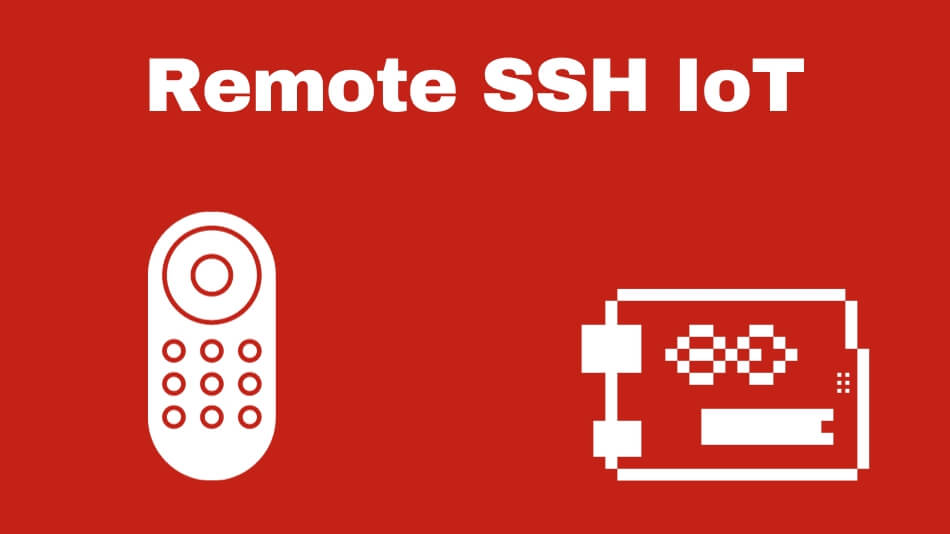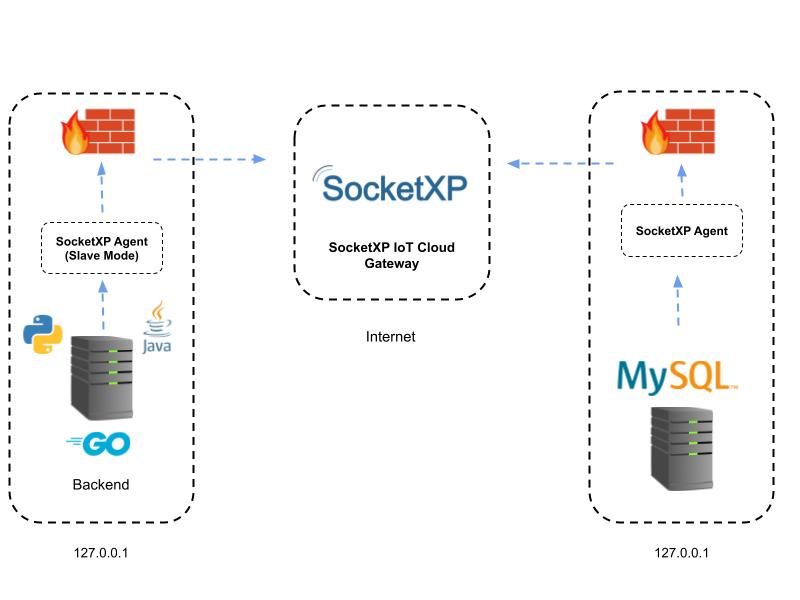Best SSH IoT Devices: Unlocking The Power Of Secure Remote Access
Are you tired of dealing with unsecured IoT devices that put your network at risk? Well, buckle up because we're diving deep into the world of best SSH IoT devices. These little wonders offer secure communication, encrypted connections, and peace of mind for tech enthusiasts and professionals alike. If you're looking to level up your IoT game, this is the ultimate guide for you.
In today’s hyper-connected world, IoT devices are everywhere—from smart homes to industrial systems. But here’s the catch: not all devices are created equal. Many of them lack the necessary security features, leaving your network exposed to hackers and cyber threats. That’s where SSH (Secure Shell) comes in. It’s like a digital bouncer, ensuring only authorized users can access your devices.
This article will walk you through the top SSH IoT devices on the market, explain why they matter, and provide practical tips for setting them up. Whether you're a tech-savvy hobbyist or a seasoned IT professional, this guide has something for everyone. So, grab a cup of coffee and let’s get started!
Read also:The Chilling Story Of Junko Furuta A Case That Haunted Japan
Table of Contents
- What is SSH?
- Why SSH Matters for IoT Devices
- Top SSH IoT Devices You Should Know About
- Criteria for Choosing the Best SSH IoT Device
- Raspberry Pi: The King of SSH IoT Devices
- NVIDIA Jetson Nano: Powerhouse for AI-Driven IoT
- BeagleBone Black: A Budget-Friendly Option
- Comparison of Popular SSH IoT Devices
- Tips for Setting Up SSH on IoT Devices
- Wrapping It Up: Your Next Move
What is SSH?
SSH, or Secure Shell, is like a superhero for remote access. It creates an encrypted tunnel between your computer and a remote device, making it nearly impossible for hackers to intercept your data. Think of it as a secret handshake that only you and your device understand.
Originally developed in the 90s, SSH has become the go-to protocol for secure communication in the tech world. It supports authentication, encryption, and integrity checks, ensuring your data remains safe and sound. For IoT enthusiasts, SSH is a must-have feature when selecting devices.
Now, let’s talk about why SSH is so important for IoT devices. Stick around, because this is where things get interesting!
Why SSH Matters for IoT Devices
IoT devices are awesome, but they come with a catch—security vulnerabilities. Many of these devices lack basic security features, making them easy targets for hackers. That’s where SSH steps in to save the day.
Key Benefits of Using SSH for IoT
- Encryption: SSH encrypts all data transmitted between your device and the server, keeping prying eyes at bay.
- Authentication: It verifies the identity of users and devices, ensuring only authorized parties can access your system.
- Remote Management: With SSH, you can manage your IoT devices from anywhere in the world, as long as you have an internet connection.
- Peace of Mind: Knowing your devices are secure gives you the confidence to focus on more important tasks.
Without SSH, your IoT devices are like open doors for hackers. Would you leave your front door unlocked? Probably not. So, why take the risk with your IoT setup?
Top SSH IoT Devices You Should Know About
Now that we’ve covered the basics, let’s dive into the best SSH IoT devices on the market. These devices are designed with security and flexibility in mind, making them perfect for both beginners and experts.
Read also:How Much Does Scott Jennings Make On Cnn The Untold Story Behind The Numbers
1. Raspberry Pi
The Raspberry Pi is a fan favorite in the IoT community. This tiny computer packs a punch when it comes to SSH capabilities. With its open-source operating system and vast community support, it’s a great choice for anyone looking to experiment with secure IoT setups.
2. NVIDIA Jetson Nano
If you’re into AI and machine learning, the NVIDIA Jetson Nano is worth considering. It’s a powerful device that supports SSH and is ideal for projects requiring heavy computational power.
3. BeagleBone Black
For those on a budget, the BeagleBone Black offers excellent value. It’s a compact, affordable device that supports SSH and is perfect for smaller IoT projects.
Criteria for Choosing the Best SSH IoT Device
With so many options available, how do you choose the right SSH IoT device for your needs? Here are some key factors to consider:
- Performance: Look for devices with enough processing power to handle your workload.
- Connectivity: Ensure the device supports the necessary protocols and interfaces for your project.
- Security Features: Opt for devices with built-in security features, such as SSH and firewall support.
- Community Support: Devices with active communities often have better documentation and troubleshooting resources.
- Price: Set a budget and stick to it. Remember, more expensive doesn’t always mean better.
By evaluating these factors, you’ll be able to narrow down your options and find the perfect SSH IoT device for your project.
Raspberry Pi: The King of SSH IoT Devices
Let’s talk about the Raspberry Pi, the undisputed king of SSH IoT devices. This little powerhouse has captured the hearts of tech enthusiasts worldwide, and for good reason.
The Raspberry Pi offers a range of models, each tailored to specific use cases. From the budget-friendly Pi Zero to the high-performance Pi 4, there’s a model for everyone. All Raspberry Pi models come with built-in SSH support, making them ideal for secure IoT projects.
Here’s a quick rundown of what makes the Raspberry Pi so special:
- Open-Source: The Raspberry Pi runs on Linux-based operating systems, giving you complete control over your setup.
- Community Support: With a massive community of developers and enthusiasts, you’ll never be short on resources or advice.
- Flexibility: Whether you’re building a smart home system or a weather station, the Raspberry Pi can handle it all.
So, if you’re looking for a versatile, secure, and affordable SSH IoT device, the Raspberry Pi is definitely worth considering.
NVIDIA Jetson Nano: Powerhouse for AI-Driven IoT
If your IoT project involves AI or machine learning, the NVIDIA Jetson Nano is a game-changer. This powerful device combines SSH security with cutting-edge AI capabilities, making it perfect for advanced projects.
Here’s why the NVIDIA Jetson Nano stands out:
- AI Performance: With 128 CUDA cores, the Jetson Nano can handle complex AI computations with ease.
- SSH Support: Like other top-tier devices, the Jetson Nano offers built-in SSH capabilities for secure remote access.
- Developer Tools: NVIDIA provides a range of tools and libraries to help you build and deploy AI applications.
While the Jetson Nano is more expensive than some other options, its performance and capabilities make it a worthwhile investment for serious IoT enthusiasts.
BeagleBone Black: A Budget-Friendly Option
Not everyone has the budget for a Raspberry Pi or NVIDIA Jetson Nano, and that’s where the BeagleBone Black comes in. This compact device offers excellent value for money, making it a great choice for smaller IoT projects.
Key features of the BeagleBone Black include:
- Affordability: At a fraction of the cost of other devices, the BeagleBone Black is perfect for budget-conscious users.
- SSH Support: Like its competitors, the BeagleBone Black offers secure SSH access for remote management.
- Compact Design: Its small size makes it ideal for projects with limited space.
While it may not have the same processing power as some other devices, the BeagleBone Black is still a capable performer for simpler IoT applications.
Comparison of Popular SSH IoT Devices
Now that we’ve covered some of the top SSH IoT devices, let’s compare them side by side. Here’s a quick overview to help you make an informed decision:
| Device | Price | Performance | Connectivity | Security Features |
|---|---|---|---|---|
| Raspberry Pi | $35-$75 | High | Wi-Fi, Bluetooth | SSH, Firewall |
| NVIDIA Jetson Nano | $99 | Very High | Wi-Fi, Ethernet | SSH, AI Security |
| BeagleBone Black | $45 | Medium | Ethernet | SSH |
As you can see, each device has its own strengths and weaknesses. Your choice will ultimately depend on your specific needs and budget.
Tips for Setting Up SSH on IoT Devices
Setting up SSH on your IoT devices doesn’t have to be complicated. Here are some tips to help you get started:
- Enable SSH: Most devices require you to enable SSH manually. Check the documentation for your specific device.
- Use Strong Passwords: Weak passwords are a hacker’s best friend. Use strong, unique passwords for all your devices.
- Update Regularly: Keep your device’s firmware and software up to date to protect against vulnerabilities.
- Limit Access: Restrict SSH access to trusted IP addresses to reduce the risk of unauthorized access.
By following these tips, you’ll ensure your SSH IoT devices are as secure as possible.
Wrapping It Up: Your Next Move
There you have it—the ultimate guide to the best SSH IoT devices. From the versatile Raspberry Pi to the powerful NVIDIA Jetson Nano and the budget-friendly BeagleBone Black, there’s a device for every need and budget.
Remember, security is key when it comes to IoT devices. By choosing a device with built-in SSH support, you’re taking a crucial step towards protecting your network from cyber threats.
So, what’s your next move? Whether it’s experimenting with a Raspberry Pi, diving into AI with the NVIDIA Jetson Nano, or keeping things simple with a BeagleBone Black, the world of IoT is full of possibilities. Share your thoughts and experiences in the comments below, and don’t forget to check out our other articles for more tech insights.
Article Recommendations


